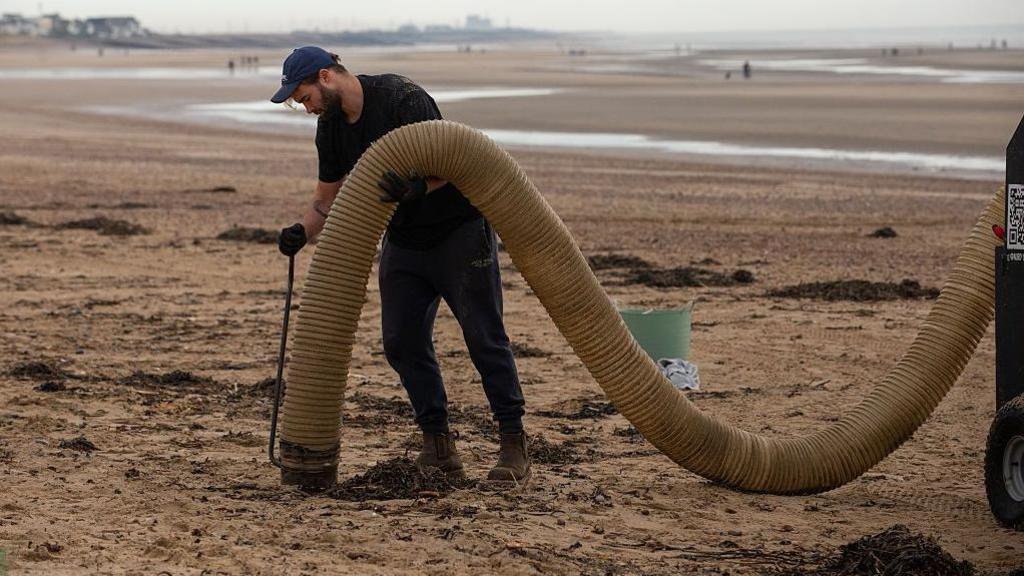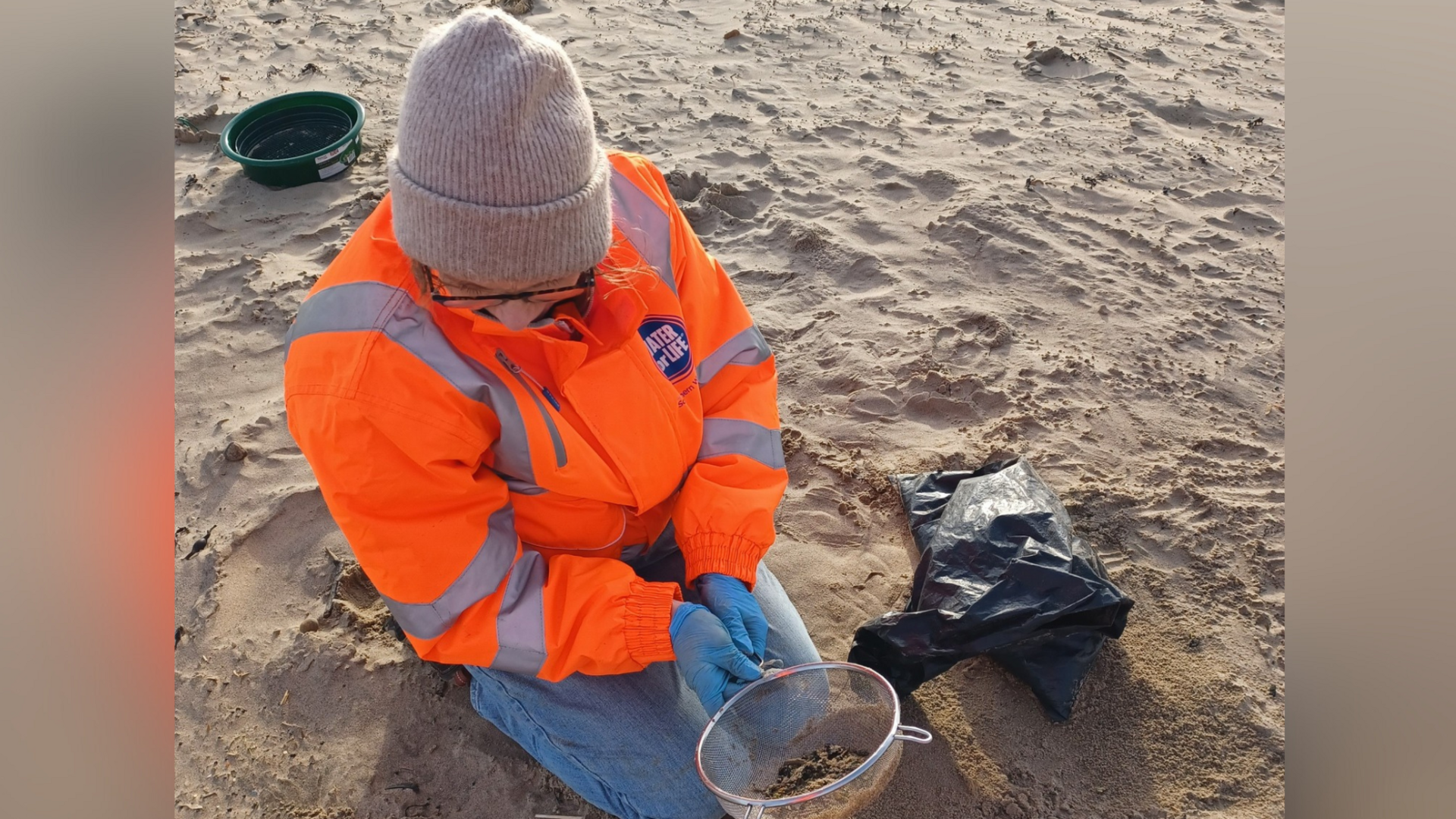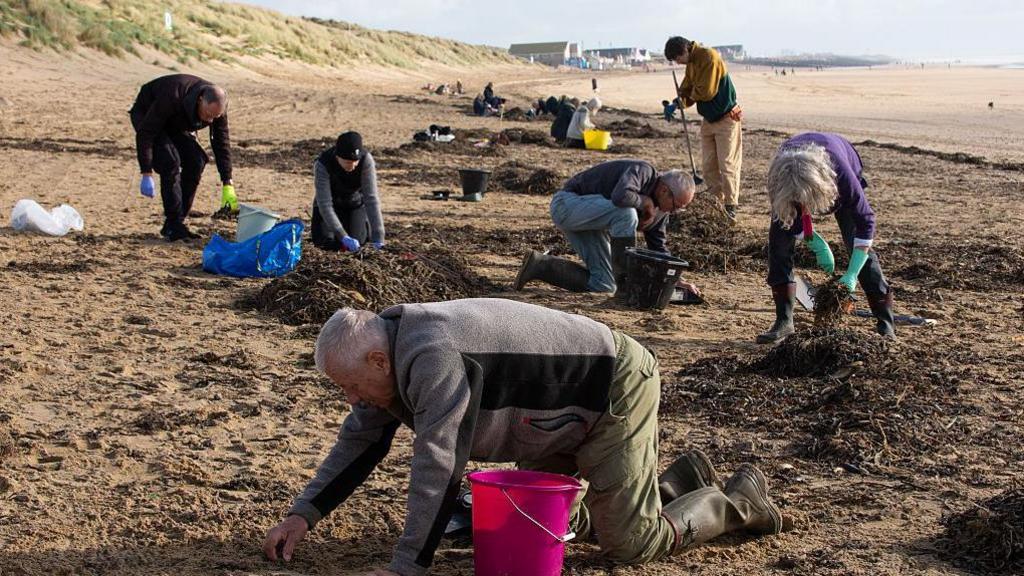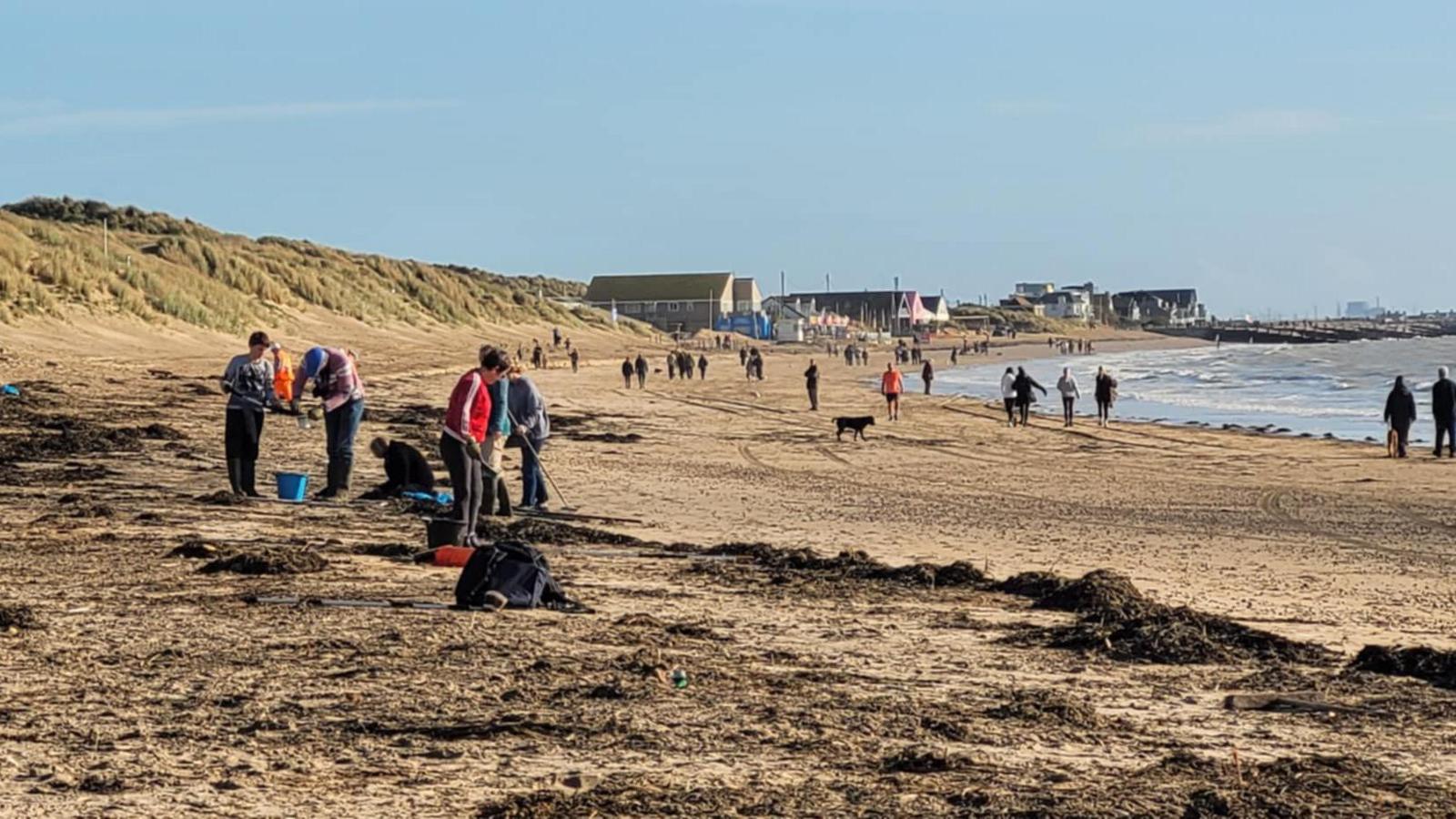Pellets could wash up on beach 'for the next year'

Southern Water said about 80% of the beads have now been removed from the beach
- Published
Pellets could continue washing up on an East Sussex beach "for the next year or even longer", Rother District Council (RDC) has warned.
Southern Water said it was "highly likely" that millions of pellets washed up at Camber Sands over the weekend was due to an issue at its Eastbourne wastewater site.
The water company, which has apologised for the spill, said a defective tank was spotted on 28 October, but it was not known at the time whether any pellets had escaped.
A spokesperson said that about 80% of the beads have now been removed from the beach as a result of the clean-up operation, led by RDC.

Southern Water says it is "continuing to monitor and clear the beach for any more beads"
The water company said: "We're continuing to monitor and clear the beach for any more beads.
"The beads are non-toxic, non-hazardous, and chemically stable - they pose no risk to water quality or public health. They cause no harm from contact but should not be swallowed."
Southern Water said it anticipated that "more beads may wash up with the spring tide".
The environment portfolio holder at RDC said she feared long-term ramifications of the spill.
"I'm very concerned about the ongoing impact this pollution incident will have on our environment," said Councillor Kathryn Field.
"Unfortunately, we could see pellets washing up on our coastline at Camber and elsewhere for the next year or even longer."
Nurdle, the non-profit company enlisted by RDC to help remove the pellets, has told the council its specialist equipment is most effective following spring tides.
As a result, work will continue after each spring tide over the coming weeks and months.
RDC leader Doug Oliver said the council was in talks with Southern Water to have further specialist equipment delivered to Camber as soon as possible.
John Peniculd, Southern Water managing director of wastewater, previously told BBC Radio Sussex that a "complicated mix" of customer and shareholder funds will pay for the clean-up operation.
Follow BBC Sussex on Facebook, external, on X, external, and on Instagram, external. Send your story ideas to southeasttoday@bbc.co.uk , external or WhatsApp us on 08081 002250.
- Published1 day ago
- Published2 days ago

- Published3 days ago
